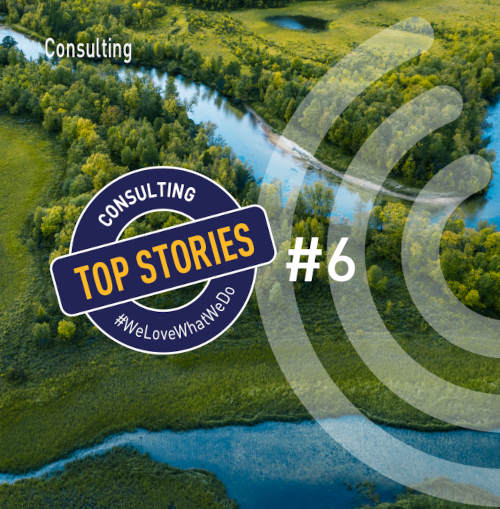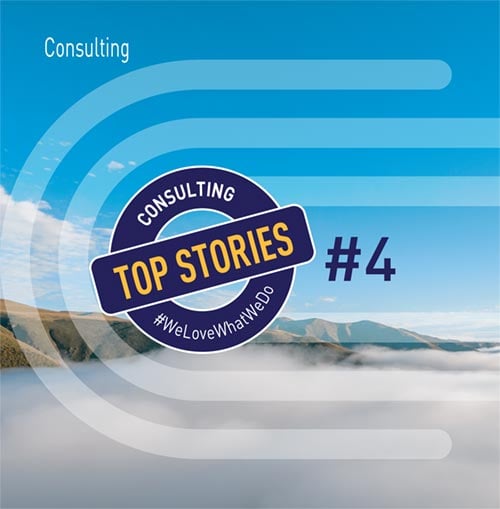Reconciling the digital and ecological transitions
Digital solutions require natural resources to operate and generate significant quantities of greenhouse gas emissions: 4% of global emissions, rising 8%* a year, with 25% annual growth in global data consumption. These figures reflect rapid development in uses of digital technology, confronting us with the growing challenge of reconciling the digital transition with the environmental transition.
These technologies help to reduce energy consumption, resource use and, ultimately CO2 emissions from urban services. If waste is only collected when a bin is full, if street lights only come on when people are passing by and if automatic watering is only triggered when needed, then these solutions make a clear contribution to the environmental transition.
SUEZ works alongside cities to design solutions that place digital technology at the heart of their environmental transformation into smart cities.
* The Shift Project, Lean ICT, pour une sobriété numérique, 2018
These technologies help to reduce energy consumption, resource use and, ultimately CO2 emissions from urban services. If waste is only collected when a bin is full, if street lights only come on when people are passing by and if automatic watering is only triggered when needed, then these solutions make a clear contribution to the environmental transition.
SUEZ works alongside cities to design solutions that place digital technology at the heart of their environmental transformation into smart cities.
* The Shift Project, Lean ICT, pour une sobriété numérique, 2018
Sustainable digital tech, driving the resilient smart city
Digital energy efficiency must be seen as an integral part of the development and use of smart objects, information systems and our solutions, services and business lines. SUEZ has signed up to the Planet Tech’Care initiative, a networking platform for companies and training organisations that want to work together to reduce the environmental footprint of digital technology.
Digital energy efficiency as a contributor to the environment and the social good is a crucial factor for our future and our children’s future. Driving innovation forward, more energy-efficient digital technology demonstrates that the environmental and digital transitions go together in the design of resilient, attractive cities. Today we are still at the beginning of digital energy efficiency, but we need to come together to work on this major challenge.
Digital energy efficiency as a contributor to the environment and the social good is a crucial factor for our future and our children’s future. Driving innovation forward, more energy-efficient digital technology demonstrates that the environmental and digital transitions go together in the design of resilient, attractive cities. Today we are still at the beginning of digital energy efficiency, but we need to come together to work on this major challenge.
Our references
In Angers, the Group is combining digital energy efficiency with savings in the resources available in the local area. The storage capacity of the hard disks it uses is four times higher than standard disks, leading to a 96% reduction in energy consumption. The use of digital technologies to improve the performance of urban services will also reduce the water consumed by sprinklers in green spaces by 30% and cut nocturnal water leaks by 20% via smart water network management.
In Dunkirk, working with the Dunkirk Urban Community (CUD), SUEZ is reinventing air quality monitoring with a digital platform. Using artificial intelligence to cope with growing volumes of data, the platform will optimise the information and orchestrate it intelligently. Rather than centralising all data flows, which is a costly and energy-intensive process, the data will be processed locally where it is produced.
La Rochelle has set itself an ambitious target: dividing its greenhouse gas emissions by four by 2040 to achieve carbon neutrality. SUEZ teams are working on the “La Rochelle Zero Carbon Territory” project to develop a sustainable digital strategy in response to this challenge. They will assess levels of digital maturity and conduct an environmental impact analysis using carbon footprint and life cycle analysis tools. The scope of this work will include digital activity across the urban area. A roadmap will then be developed jointly with La Rochelle stakeholders to guide the area forward with a collective approach.
In Dunkirk, working with the Dunkirk Urban Community (CUD), SUEZ is reinventing air quality monitoring with a digital platform. Using artificial intelligence to cope with growing volumes of data, the platform will optimise the information and orchestrate it intelligently. Rather than centralising all data flows, which is a costly and energy-intensive process, the data will be processed locally where it is produced.
La Rochelle has set itself an ambitious target: dividing its greenhouse gas emissions by four by 2040 to achieve carbon neutrality. SUEZ teams are working on the “La Rochelle Zero Carbon Territory” project to develop a sustainable digital strategy in response to this challenge. They will assess levels of digital maturity and conduct an environmental impact analysis using carbon footprint and life cycle analysis tools. The scope of this work will include digital activity across the urban area. A roadmap will then be developed jointly with La Rochelle stakeholders to guide the area forward with a collective approach.
Sustainable & smart city
Discover


